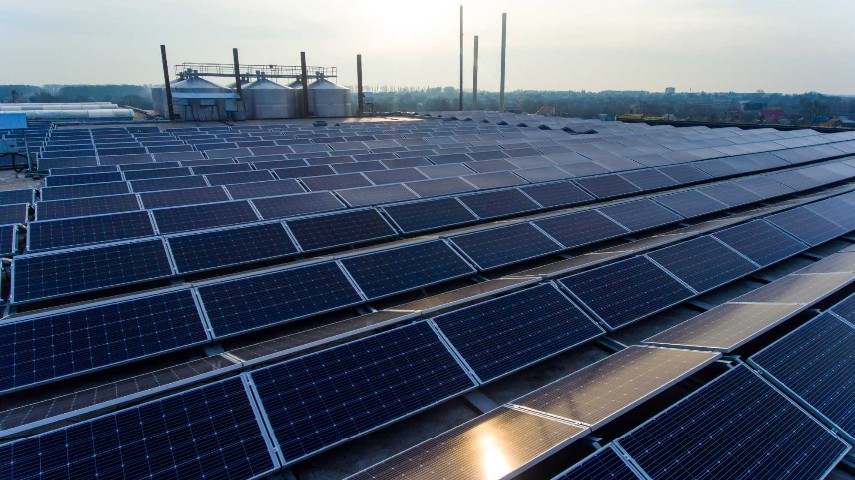A Major Deal Unveiled
In a significant move towards a sustainable future, Cyprus has recently announced a major renewable energy deal that promises to transform the island's energy landscape. This landmark agreement is set to boost the country's renewable energy capacity, reduce its reliance on fossil fuels, and contribute to global efforts to combat climate change. Here's everything you need to know about this exciting development and what the future holds for renewable energy in Cyprus.

The Deal
The Department of Environment in Cyprus has green-lighted plans for a massive 180-megawatt solar park, which will include an 80MWh battery storage capacity[1]. This ambitious project is set to be developed across the communities of Lythrodontas, Kataliontas, and Mathiatis, covering approximately 2.5 million square meters. The solar park will feature 264,712 solar panels, making it one of the largest renewable energy projects in the region.
Environmental Considerations
While the project has cleared initial environmental screening, it has faced opposition from local authorities and environmental groups. The development site is near the Yialias River, a protected Natura 2000 site, and will require careful planning to ensure minimal impact on the surrounding environment[1]. The project will include a 500-meter buffer zone between the development and the protected area, as mandated by the Interior Minister's Renewable Energy Licensing Framework directive.
Economic and Social Impact
The solar park is expected to have a significant positive impact on the local economy. It will create numerous job opportunities during the construction and operational phases, providing a much-needed boost to the local communities. Additionally, the project will contribute to Cyprus's energy security by reducing its dependence on imported fossil fuels and stabilizing electricity prices for consumers[1].
Challenges and Opposition
Despite the many benefits, the project has not been without its challenges. Local communities have expressed concerns about the environmental impact, particularly the planned removal of over 1,400 mature pine trees[1]. The site also contains multiple watercourses, requiring protective zones to prevent contamination. The Environmental Impact Assessment Committee will evaluate additional factors, including archaeological sites, natural vegetation, protected trees, raptor nesting sites, high-value agricultural land, and areas of geological interest.
Potential Future Projects
Cyprus is poised for significant growth in its renewable energy sector, with several potential projects on the horizon:
-
Offshore Wind Farms: With its strategic location and favorable wind conditions, Cyprus has the potential to develop offshore wind farms. These projects could significantly increase the country's renewable energy capacity and provide a reliable source of clean energy[2].
-
Hydrogen Production: As the future energy carrier, hydrogen production is gaining traction in Cyprus. The island's abundant solar energy can be harnessed to produce green hydrogen, which can be used for various applications, including transportation and industrial processes[2].
-
Expansion of Solar PV Systems: Cyprus's high solar irradiance makes it an ideal location for expanding solar photovoltaic (PV) systems. The government is expected to continue promoting solar energy projects, both large-scale and small-scale, to increase the share of renewables in the energy mix[3].
Renewable Energy Statistics in Cyprus
Cyprus has made significant strides in increasing its renewable energy capacity over the years. Here are some key statistics:
- Installed Renewable Energy Capacity: As of 2023, Cyprus has an installed renewable energy capacity of approximately 500 MW, with solar energy accounting for the majority.
- Renewable Energy Share: In 2021, renewable energy accounted for 12% of the total energy supply in Cyprus.
- Energy Consumption: Renewable energy consumption in Cyprus includes solar (43%), wind (19%), and bioenergy (14%).
- Energy Self-Sufficiency: Cyprus's energy self-sufficiency has increased from 6% in 2016 to 9% in 2021.
Government and Industry Support
The Cypriot government and industry leaders have shown strong support for renewable energy projects, emphasizing their importance for the country's energy goals. The government has been actively promoting renewable energy initiatives, aiming to increase the share of renewables in the energy mix and reduce greenhouse gas emissions[2]. These efforts are aligned with the European Union's targets for renewable energy and climate action.
Conclusion
The major renewable energy deal in Cyprus marks a significant milestone in the country's journey towards sustainability. While there are challenges to overcome, the potential benefits for the environment, economy, and society are immense. As Cyprus continues to invest in renewable energy, it sets an example for other nations to follow, showcasing the importance of transitioning to cleaner, greener energy sources.
[1]: Cyprus Renewable Energy Deal [2]: Green Energy Investments in Cyprus [3]: Renewable Energy Expansion in Cyprus : Cyprus Energy Profile : IRENA Energy Profile for Cyprus
References
